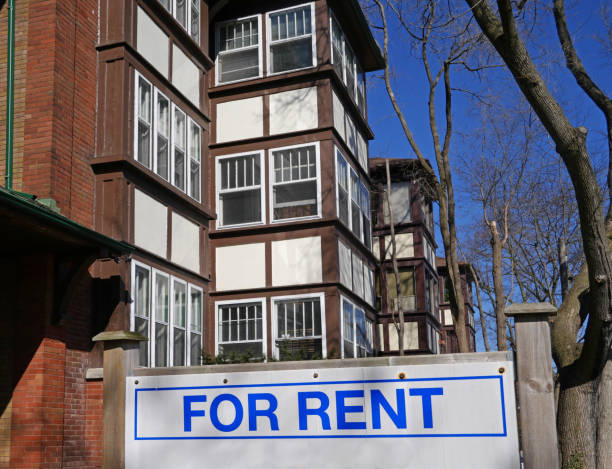Whether you are moving out in pursuit of a larger apartment, changing jobs, or merely looking for a change of scenery, you will want to know how long it will take to rent your next apartment.
How long it takes to rent apartments in Keego Harbor, MI often depends on the approach you choose. With that said, finding your future apartment might take anywhere from three to six weeks, on average. From there, the landlord and tenant both need to wait on a credit and background check to clear before signing the lease.
From the moment you begin your search to signing the lease agreement, planning is key to fastening and streamlining the entire process of renting 1-bedroom apartments in Keego Harbor, MI or 2-bedroom apartments in Keego Harbor, MI. Your level of preparedness will decide whether your apartment hunt runs smoothly from beginning to end.
How Long Does it Take to Rent an Apartment?

Typically, the apartment hunting process should start the moment you know you want to move. If you do not begin the process early, your ideal apartment may be taken. The sooner you start looking for your new apartment to live in, the better chance you have at finding a great deal and avoiding any last-minute rush of traffic or competition.
So, how long will that take before you sign the lease agreement? Let us find out!
What to do 3+ Months Before Moving In
If you are planning to move out soon, the first thing you should do is save up money equivalent to about six months worth of rent. This will help cover your basic living expenses and give you some savings to manage emergencies in your new place.
Renting an apartment comes with several costs that you need to be prepared for. The biggest upfront cost typically is the move-in fees, which includes the security deposit, first (and possibly last month’s rent), pet fees (if applicable), and sometimes a broker fee.
After you have sorted out your finances, consider where you want to live and how much it will cost, along with the financial implications of relocating. If the neighborhood you want to move to is prohibitively pricey, you may want to consider renting with a roommate. If you do choose to go this route, you do not want to rush into anything when considering a roommate. You have just one chance at this, since both of your names will go on the lease, and you want it to be the right person. You should start searching early and wait until it feels right before moving forward with any potential roommates.
What to do 2-3 Months Before Moving In
The best time to start looking for apartments is roughly two to three months before needing to move-in. This should give you enough time to find your dream apartment, make all the necessary arrangements, and be prepared for your move.
The most common mistake people make when they start the apartment search process is waiting too long. This typically leads to a less than satisfactory living situation.
It is much easier to find what you are looking for when you have more time to dedicate to the search process. Perform due diligence on the area you choose to relocate to and verify all relevant information to assist you in finding the perfect apartment.
This is also a good time to consider how many bedrooms you require and how much rent you are ready to pay for an apartment in your selected location. A great way to find out if the apartment is worth it is by asking questions in public forums. Many communities offer online forums, such as City-Data.com, where you may get useful information about your new potential neighborhood.
What to do 1-2 Months Before Moving In
After you have gathered all of the information you need about your target location, filter down your apartment options to the ones that best meet your requirements. Things to consider here include:
- Commute duration
- Housing style
- Room size
- Pricing
At this point, you are looking for a place that offers all of the amenities you desire while remaining within your budget. Pick around 5-15 of the best apartments and organize a tour within the next few days. It may be a good idea, however, to start with a virtual apartment tour before seeing them in-person. Many apartment complexes provide 360-degree virtual tours, allowing you to examine the majority of the amenities and decide whether or not to rent the apartment.
After a successful virtual tour, make a list of the units that have impressed you and make an appointment to see them in–person to learn more about the neighborhood.
What to do 1 Month Before Moving In
Now that you have laid the groundwork, it is time to select an option that best suits your needs. If you are satisfied with your findings, the next step is to fill out the rental application forms.
Rental applications require a lot of personal information, but it’s important. You will need to provide items like:
- Proof of income, i.e. bank statements and tax returns
- Driver’s license number
- Previous landlord references
Make sure you have all of the necessary paperwork before beginning the apartment rental application process. If everything seems good, finish the rental application, then go over it again to be sure all of the information is correct.
The good news is that most communities provide online rental applications to make the procedure more convenient. Expect to pay $35 to $75 processing fee for an apartment application fee.
How Long Does it Take for an Apartment Application to be Approved?
Most landlords and property managers handle applications within 2 to 3 days (rental application process time). With that said, due to extensive background checks that are frequently required (monthly income, rental history, and credit check/credit report), processing may take longer at times.
If your application is approved, prepare for the moving day. It is always a good idea to plan ahead, so have all the necessary items and know all of what should happen on that day.
Tips for Getting Approved for an Apartment Faster
If you are looking for housing, it can be difficult at times to know if you will be approved or not. The apartment application approval process is more competitive than ever, and so many things can go wrong. Here are a few tips that might help you get approved for an apartment faster:
Understand the Application Requirements
You must carefully read the application requirements, including income level/proof of income (current and previous employment), credit score, rent to income ratio, among other requirements. This criteria is used to determine an applicant’s ability to pay rent, along with their ability to pay any potential damages or fees that may arise in the future.
The best thing you can do is call the leasing office or property management company and inquire if there are any additional documents they need in your apartment application process. The more information you offer to demonstrate that you are a responsible renter who will take care of the rental property and can afford the monthly rent, the better your chances of being approved are.
Examine Your Current Financial Situation
Background and credit checks are an essential part of any apartment application process. The landlord or property manager must have a sense of a prospect’s rental history and financial history. For this reason, most applications will require you to submit personal information, like social security number, driver’s license number, and income verification.
The landlord will investigate any potential red flags, such as complaints filed against you by prior landlords/past landlords and credit history. If any of this shows that you consistently miss payments, your application is likely to be denied.
Be Ready with a Cosigner if Your Credit Score is Bruised
When it comes to renting apartments, your credit score is important. Most landlords will require a credit score of at least 620 or above, so if you have anything less than that, you may want to enlist the help of a cosigner.
A cosigner is someone who agrees to guarantee payment of your rent if you are unable to do so. It could be a family member or a friend who earns more money than you.
Always be Reachable
The potential landlord may call you for a background check, or for some other reason, and if you are unavailable, they may just move on to the next candidate. As a result, make sure you can be reached at all times during your application period.
Submit a Complete Rental Application
The fact that the rental application is not completed means that the potential landlord does not have all of the information they need to process it properly. As a result, your apartment application is more likely to be turned down. So, after you have the completed rental application, make sure to look through and double-check that any and all essential papers are attached.
Approved or Denied: What Happens Next?
After the apartment application process is complete, the landlord will call to inform you of their decision, regardless of the outcome. If your application is approved, you will be given instructions on what to do next.
However, if your application is denied, they will notify you and explain why. It is a common industry practice for landlords to provide feedback after the rental application process is complete.
Can I Re-Apply for an Apartment if I get Denied?
If your reason for rejection was related to finances, you could re-apply with a quality cosigner, and your application would most likely be granted. However, if your reason for rejection is something like a lawsuit filed against you by a former landlord or for having a criminal background, your chances are slim.
Final Thought
It is possible to find and move into an apartment within three months of knowing when you want to move-out. With that said, without completing the proper due diligence, finding the ideal apartment that meets your needs may take more time.
Moving out is a difficult undertaking, especially if you are financially unable to do so. So, set aside some time to save for several months worth of rent and the upfront fees. Most landlords will ask for your two recent pay stubs, at a very minimum, so you need to have a solid financial record to stand a chance of getting approved.









